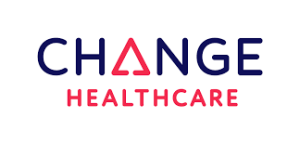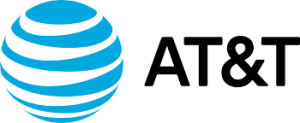In 2024, North America experienced a surge in data breaches, highlighting vulnerabilities across various sectors. From healthcare to telecommunications, millions of individuals’ personal and financial information were exposed, serving as a stark reminder of the growing importance of robust cyber security measures. Below is a look at some of the most notable breaches that occurred this year and their far-reaching consequences.

National Public Data Breach
In August 2024, National Public Data, a Florida-based background check company, suffered one of the largest data breaches in history. Personal information of approximately 2.9 billion individuals was compromised, including Canadians. Exposed data included full names, addresses, dates of birth, phone numbers, and Social Security numbers.
This breach led to a class-action lawsuit and resulted in National Public Data filing for Chapter 11 bankruptcy. The sheer size of the breach highlights the importance of protecting personal information stored by organizations, particularly those handling sensitive data on a large scale.

Ticketmaster Data Breach
Ticketmaster, a global leader in event ticket sales, confirmed a significant data breach in May 2024 that impacted over 560 million customers, including Canadians. Personal and financial information, such as names, email addresses, phone numbers, and payment details, were compromised in this attack.
For businesses in the entertainment and ticketing sectors, this breach emphasizes the need for constant vigilance and enhanced security measures, especially given the vast amount of customer data they store and process.

Change Healthcare Ransomware Attack
In February 2024, Change Healthcare, a healthcare technology company, was targeted in a ransomware attack that impacted 145 million individuals. Sensitive personal, medical, and billing information were compromised, resulting in a widespread disruption of critical healthcare operations across North America.
Healthcare organizations, which handle highly sensitive data, continue to be prime targets for cybercriminals. This attack reinforces the importance of having strong ransomware defenses, secure data backup procedures, and an effective incident response plan in place.

AT&T Data Breach
In March 2024, telecommunications giant AT&T experienced a data breach that exposed the personal information of approximately 73 million current and former customers, including Canadians. Social Security numbers, account numbers, and passcodes were part of the compromised data.
The breach revealed weaknesses in AT&T’s data protection infrastructure and highlighted the risks associated with storing large amounts of sensitive customer data. For telecom companies, this incident serves as a reminder to prioritize cyber security and data protection measures.

Snowflake Cloud Data Breach
Cloud service provider Snowflake was involved in multiple breaches in 2024, with over 165 customer environments being compromised. Prominent organizations like Ticketmaster, Santander Bank, AT&T, and Advance Auto Parts were among the victims. These breaches exposed sensitive customer data and underscored the vulnerabilities that exist in cloud service providers.
With cloud-based platforms becoming essential for business operations, the breaches affecting Snowflake clients are a wake-up call for businesses to ensure their cloud environments are secure, regularly updated, and continuously monitored for potential threats.

Suncor Energy Ransomware Attack
In July 2024, Suncor Energy, one of Canada’s largest energy companies, fell victim to a sophisticated ransomware attack that disrupted operations and exposed personal information of employees and contractors. While Suncor did not confirm the full extent of the breach, it was speculated that sensitive company data, including intellectual property and critical infrastructure details, were at risk.
This incident underscores the potential vulnerabilities in the energy sector and highlights the growing threat to critical infrastructure. With rising tensions globally, ransomware targeting energy providers has become a significant concern.

Sobeys Data Breach
In March 2024, Sobeys, one of Canada’s largest grocery chains, confirmed a data breach that affected the personal information of 500,000 customers. The breach exposed customer payment data, loyalty card information, and other personal identifiers. The breach caused panic among customers who feared identity theft and fraud.
This breach serves as a reminder for retailers to invest in stronger security protocols to protect customer information and to ensure that payment systems are compliant with industry standards.

Canadian Revenue Agency (CRA) Data Leak
In October 2024, CRA confirmed that an internal error led to the exposure of over 2 million Canadian taxpayers’ personal information. The breach occurred due to a vulnerability in the online tax filing system, resulting in sensitive data such as Social Insurance Numbers (SIN), tax returns, and financial details being left accessible to unauthorized individuals.
This breach underlines the importance of stringent data protection measures, especially for government agencies handling vast amounts of highly sensitive data.
Lessons Learned from the 2024 Breaches
These incidents serve as critical reminders of the evolving landscape of cyber security threats and the growing sophistication of cyberattacks. Organizations, regardless of industry, must prioritize cyber security measures, including regular assessments, patch management, and employee training.
Here are a few key takeaways for businesses to enhance their cyber security in light of these breaches:
- Data Protection Is Critical
Businesses must implement strong encryption methods, secure data storage solutions, and restrict access to sensitive information. Regular audits and penetration testing should be a standard part of every organization’s security practices. - Strengthen Endpoint Security
Ransomware attacks like the one on Change Healthcare demonstrate the importance of endpoint security. Ensuring that all devices connected to your network have the latest security updates and software patches can significantly reduce vulnerabilities. - Adopt Multi-Layered Defenses
As seen in the AT&T breach, relying on basic security measures is no longer sufficient. Businesses must adopt multi-layered security defenses, including firewalls, intrusion detection systems, and multi-factor authentication (MFA), to mitigate risks. - Cybersecurity Awareness and Training
Human error remains one of the most common causes of data breaches. Organizations should invest in cyber security training for employees to recognize phishing attempts, social engineering attacks, and other threats.
The Road Ahead for Cyber Security in Canada
As the number of data breaches continues to grow, both in Canada and globally, the need for proactive and comprehensive cyber security strategies has never been greater. For organizations large and small, 2024 serves as a wake-up call to reevaluate and strengthen their security practices.
With increased investment in security technologies, better training, and a commitment to keeping systems up to date, businesses can better safeguard their networks, protect sensitive data, and minimize the risk of devastating breaches.
By learning from these high-profile breaches, companies can improve their cyber security posture and better protect their customers in the future.
These breaches serve as crucial reminders of the importance of a strong cyber security defense. Stay vigilant, adopt robust protection strategies, and make cyber security a top priority in 2025!












